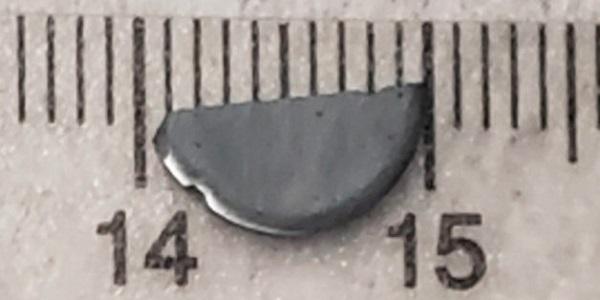Where there’s electricity, there’s usually heat – and that’s a major hurdle for shrinking electronic devices. Scientists have now found that nanowires made of a certain isotope of silicon can conduct heat 150 percent better than regular silicon, potentially leading to drastically cooler computer chips.
In a busy electronic system, electrical currents generate plenty of heat, which can damage components if allowed to build up. As such, cooling technology has advanced at a rapid pace too, but as electronics get smaller and smaller, it gets harder to dissipate heat effectively.
In the new study, the researchers discovered a new phenomenon that could one day be used to make computer chips with far superior cooling properties. The key is a particular isotope of silicon, known as silicon-28 (Si-28). Isotopes are atoms of a particular element that contain different numbers of neutrons.
The majority – around 92 percent – of silicon already exists as Si-28, while five percent is silicon-29 and the remaining three percent is silicon-30. In a computer chip, these isotopes have the same general electronic functions, but previous studies have found that “impurities” of Si-29 and Si-30 can interrupt the flow of heat.

In the past, scientists have found that making components out of pure silicon-28 in bulk can improve heat conduction by around 10 percent – not bad, but not really worth the extra cost. For the new study, the researchers examined how well nanowires made of pure Si-28 would conduct heat.
The team placed a Si-28 nanowire measuring just 90 nanometers wide between two microheater pads, and applied an electric current to one so the generated heat would flow through the nanowire into the other. The scientists expected the improvement to be in the realm of 20 percent or so – but to their great surprise, it performed 150 percent better than nanowires of natural silicon.
Closer examination revealed a layer of silicon dioxide had formed on the outside of the nanowire, effectively smoothing out a usually rough surface that scatters heat. On the inside, the lack of defects of other isotopes kept the heat on track to travel through the core of the nanowire.
The researchers say their work could pave the way for new computer chips that can more effectively shuttle heat away, even at tiny scales. There is one major problem, however – it remains expensive and difficult to isolate silicon-28 from other isotopes. But future advances could be made in that area too, especially with some new reasons to do so.
The research was published in the journal Physical Review Letters.
Source: Berkeley Lab




